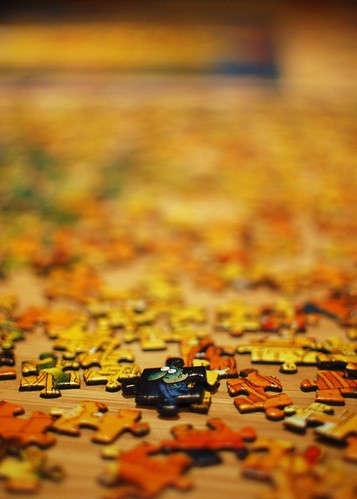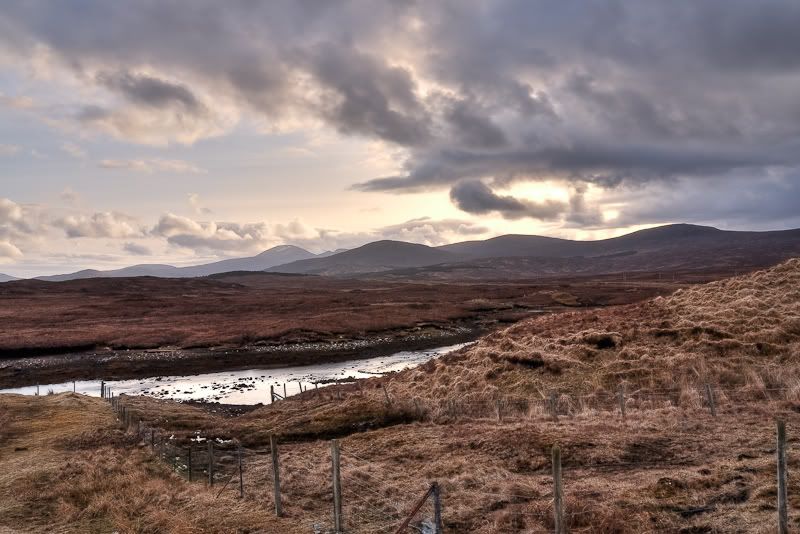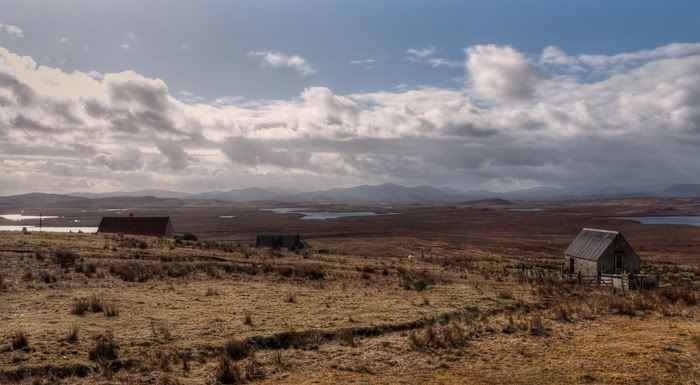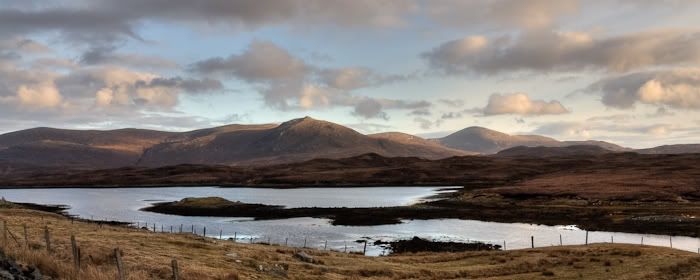- This topic has 38 replies, 18 voices, and was last updated 14 years ago by dropoff.
-
Complete novice camera/photo question
-
si-wilsonFree MemberPosted 14 years ago
Right i can just about turn on a point and shoot digi camera and take a snap, however i would like to take some better images mainly for bike product shoots and end up with good quality images.
I like this type of result too, how do i go about doing this and what equipment do i need without costing the earth?
Thanks for your input!
pedalheadFree MemberPosted 14 years agoJeff has a Canon 5D MKII with some very fast lenses, hence his great pics. How much have you got to spend? 🙂
Perhaps more usefully though, what makes his pics great are their sharpness and bokeh, both of which you get with a nice (usually expensive) lens. I'm not very familiar with what's out there in the SLR market at the moment as I'm still using a Canon 40D which is fine for me. The most important thing is definitely the lens though. Hopefully some proper camera geeks can chime in with some up to date suggestions.
nbtFull MemberPosted 14 years agoIn the hands of a competent photographer, an entry level DLSR will produce far better results than a point and shoot.
Conversely, a comptenent photographer will produce far better results from a point and shoot than an incompetent photographer with top level kit.
tragically1969Free MemberPosted 14 years agoConversely, a comptenent photographer will produce far better results from a point and shoot than an incompetent photographer with top level kit.
Hmm not sure i agree with that one, point and shoot are just that, at least with a dSLR you gave half a chance of getting it right by manually controlling exposure, aperture, shutter etc. even if you are a novice
I have just bought a new point and shoot and its utter crap compared to my dSLR even in auto mode.
MintmanFree MemberPosted 14 years agoI'm no professional but here's my opinion:
A good (but basic) DSLR and a fast-ish lens should see you right. I use a Nikon D40 and a 18-70mm lens most of the time and when you take time and concentrate the results can be pretty good (i'm on Flickr name darrenminty if you want to see what a beginner can do with a bit of effort).
The "fast" element of a lens is its ability to keep the subject in focus and the background blurred. This is generally done by using a low F number. Something down to F/2.8 should keep the price reasonable and do the job. The cost of faster lenses starts to rise markedly below this (generally speaking anyway).
Personally i'd go for a starter DSLR from Nikon/Canon or similar, the kit lens that comes with them should be fine (look for F/2.8 or lower) and grab a tripod for approx £15 from Amazon. This will remove all shake from the camera, especially useful if you are working in lower light conditions like some darker corners of a room.
coffeekingFree MemberPosted 14 years agogetting it right by manually controlling exposure, aperture, shutter etc. even if you are a novice
With a decent P&S you have full manual control over ISO, shutter, aperture etc etc. About the only difference is the lens capability and the amount of noise (due to the smaller sensor). Even £150 gets you a canon powershot that produces some nice, if noisy at low light, results.
Ultimately i'd say the thing you need is a fast wide angle lens on "a dslr" body, any modern-ish dslr body will out-perform most P&S noisewise and autofocus-wise, and then all you're looking for is a decent lens. That's where the difficulty lies. They're bloody expensive for anything better than average.
tragically1969Free MemberPosted 14 years agoWith a decent P&S you have full manual control over ISO, shutter, aperture etc etc
Yeah generally but P&S with that spec are generally a bridge camera and >£350, you might as well go straight for a Nikon D Whatever with the stock lens and it will be heaps better than the P&S, you then have better options for glass and flash, as a pro photographer friend of mine once told me "Lash the cash on glass and flash"
stumpy01Full MemberPosted 14 years agoGood photo's are very little to do with the camera and more to do with the person taking the pics.
You obviously have to accept certain limitations with a point & shoot over a more advanced camera but I would say that the least important thing about taking a decent picture is what you use to take it, and the most important is what you are taking a pic of, how you light it etc.
If you have a point & shoot camera you can still get good results but you need to understand what the camera is doing, what you might have to do to work around those limitations and how you might adapt your picture taking technique….
If you are spending enough money to warrant getting a DSLR though and you are interested in improving your photography, rather than just taking snaps then you might as well get one.
I can't see the pic you posted (just a red cross) so can't really comment on how you might go about achieving something similar.If you know very little about cameras, what all the settings do, how to get different effects etc. then a few £ spent on some books will pay dividends.
simonfbarnesFree MemberPosted 14 years agoat least with a dSLR you gave half a chance of getting it right by manually controlling exposure, aperture, shutter etc.
not if you're a novice it wouldn't! I would say get used to handling the camera, composing and choosing angle and subjects etc using auto exposure first and then worry about the details later
grummFree MemberPosted 14 years agoGood photo's are very little to do with the camera and more to do with the person taking the pics.
I know that's true to an extent but my pictures instantly got loads better when I bought a decent camera.
coffeekingFree MemberPosted 14 years agoYeah generally but P&S with that spec are generally a bridge camera
With respect that's just not the case, my first decent camera was a Canon powershot A720IS, when released it was about 180 quid, within a few months it was £120. It has full manual control and produces some nice images. Still very hard to get depth of field on such a small sensor and lens assembly,but it produces some lovely shots:
TijuanaTaxiFree MemberPosted 14 years agoThe A720is is a real bargain, got one myself and its been a great little camera
I think most people are a bit dissappointed at their first efforts from a DSLR, know I was.
Now I have a better idea it can produce some lovely pics although still have a fair few wrong'unsBiggest problem I reckon for a newcomer is blur caused by shake. If the camera doesn't have inbuilt stabilisation try and get a lens that features it
If you want to hand hold make sure the shutter speed is sufficiently high otherwise you won't ba happy with the resultsmastiles_fanylionFree MemberPosted 14 years agoConversely, a comptenent photographer will produce far better results from a point and shoot than an incompetent photographer with top level kit.
I agree entirely. I have seen a series of shots taken by David Hockney (IIRC) using a disposable camera and the shots were astonishing.
stumpy01Full MemberPosted 14 years agoCoffeeking has highlighted the main hindrance I found with point & shoot cameras – the lack of depth of field adjustment – main reason I changed from my Minolta Dimage Z3 to the D80.
beanumFull MemberPosted 14 years agoIf you're after decent product shots with selective focussing you're going to need a DSLR and a decent lens really. My gf has a Panasonic Lumic LX3 which is a cracking camera and with the F2 wide aperture it's great in low light but it doesn't really do shallow depth of field shots properly.
My Nikon D40x with the 35mm F1.8 lens (which is pretty cheap at £150) is in a different league…simonfbarnesFree MemberPosted 14 years agoI think it's ironic that people should favour small depth of field when it's completely unrealistic and merely used to approximate to the mental perception of concentration on the subject 🙂
coffeekingFree MemberPosted 14 years agoI think it's ironic that people should favour small depth of field when it's completely unrealistic and merely used to approximate to the mental perception of concentration on the subject
We've been through this 🙂
happysnapperFree MemberPosted 14 years agoTake a look a the new Oly E-PL1. It's a micro 4/3rds and the software's been designed for people stepping up from compacts (you get previews of settings). Autofocus is not as fast as a DSLR but perfectly fast enough for product shoots and quicker than a compact. There are some great lenses available for u4/3 but you can also get adapters for many other types of lens.
Can be had for about £500 with lens. This is more than a low end DLSR but the compact size and ease of use more than make up for it in my view. You also get a decent video option if that's your thing.
molgripsFree MemberPosted 14 years agoYeah generally but P&S with that spec are generally a bridge camera and >£350
That's not true. Even the cheapo Olympus basic P&S I have has full manual control – maybe it's just Olympus that do that I dunno.
The camera I jsut replaced witha DSLR would these days be called a bridge camera but back then in 2002 DSLRs were top pro kit; it has full control, white balance, ISO, a lil magnified section on the display to help with manual focus, loads of cool features and the super macro setting let you focus up to 3cm. And that's on a 8 year old camera. It's also taken some of the best shots I've ever taken. Its predecessor bought in 2000 was a 2.1MP camera with most of the same features and it took my favourite ever shot that graces the wall of my parents' house in prize position.
All you really get with a DSLR is somewhat better image quality (although if you are just using an inkjet printer you won't notice); much better usability and speed; and a few more advanced settings that you probably won't notice unless you are really really into composing and managing your shots.
Does annoy me sometiems when I see people walking into camera shops and demanding the latest Nikon or Canon when they really have no idea what they are buying.
GrahamSFull MemberPosted 14 years agoI think it's ironic that people should favour small depth of field when it's completely unrealistic and merely used to approximate to the mental perception of concentration on the subject
Not every photographer wants to make a straight recording of reality.
Is this what you actually saw in Elterwater simon?
stumpy01Full MemberPosted 14 years agowhat has realistic got to do with anything?
Kodak (I think it was Kodak) manufactured a film that reproduced colours as real to life as possible and everyone found it really dull & un-inspiring so went back to Velvia….which gave them much more punch and impact, but less realism……
joemarshallFree MemberPosted 14 years agoI've got an olympus e p1 as mentioned above.
It is great, and lovely to use, very nice being able to carry it around easily, yet still have a quality sensor and choice of lens.
Having said that, if you don't want the smallness an slr proper will probably be a bit better especially if you need to take pics of fast moving things etc
Joe
grummFree MemberPosted 14 years agoTake a look a the new Oly E-PL1.
Yeah that looks pretty good. Or dare I mention again I have the GF1 which is similar and ace. 🙂
simonfbarnesFree MemberPosted 14 years agoIs this what you actually saw in Elterwater simon?
good point – I'm continually frustrated by how bad the camera is in low light compared to my eyes. I see everything sharp and steady but end up with streaky photos – though sometimes the effect is quite pleasing 🙂
si-wilsonFree MemberPosted 14 years agoSome good points, thanks guys.
I suppose i need some idea of where to start equipment wise, i don't mind bulk as its not something i will use on the bike (i have a compact for that) but will have a look at the olympus e p1. Any other suggestions for a DSLR body and lens to get started? £500 ish for the body.
coffeekingFree MemberPosted 14 years agoIMO, unless you're looking to delve headfirst, I'd spend less on the body and more on teh lens. I picked up a canon 20D body for 200 about 12 months back (you can get the 30D for about that now (it's essentially teh same as a 20D but with bigger screen, but same internals), 40D coming in a bit more obviously) and nice fairly wide lens for 300ish would be a better option than buying spanking new body for the few features you may not use. That said, newer bodies have things like live-view and video, and mad numbers of pixels which you may want if either videoing or blowing your images up bigger than A4.
simonfbarnesFree MemberPosted 14 years agoBut I also like hyperrealism…
I found I liked it less and less as I realised its artificiality 🙁
happysnapperFree MemberPosted 14 years agoLook at the Oly e-pL1 it's the E-P1's newer and cheaper brother.
£500 ish for the body.
You don't need to spend that much for a DSLR. You can get an Oly E600 in PCworld/Currys for £330 with (very good) kit lens at the moment. Capable of wireless off camera flash which you might find useful.
I wouldn't spend more than £500 all in if you can help it. You won't notice the difference until you're pushing the boundaries of low light etc. You could also look second hand on talkphotography or ebay.
If you're not comfortable with the controls I think the EPL1 has a really good interface that will get you the images you want rather than having to learn masses of detail.
You don't need a hugely 'fast' lens to get good shots but you do want a sharp one. Fairly small close focusing will allow you to do close ups. You might also want to look at a decent flash for your product shots. Off camera flash will allow you to get different lighting angles and remove harsh shadows. But that might be a bit further down the line!
GrahamSFull MemberPosted 14 years agoI found I liked it less and less as I realised its artificiality
As you point out yourself simon, eyes often see far more than cameras, so any photo is distinctly artificial, no matter how real you try to make it.
simonfbarnesFree MemberPosted 14 years agoso any photo is distinctly artificial, no matter how real you try to make it.
agreed, but HDR overused does nothing to ameliorate this…
GrahamSFull MemberPosted 14 years agoArguably HDR (used well) should be more realistic as it comes closer to emulating the dynamic range of your eye.
coffeeking's photo is a nice example IMO as without the colour boost (and maybe HDR, not sure) it would look far blander than the scene he was actually looking at with his eyes.
simonfbarnesFree MemberPosted 14 years agoArguably HDR (used well) should be more realistic as it comes closer to emulating the dynamic range of your eye.
and yet often it glaringly fails so to do!
grummFree MemberPosted 14 years agoSome of my HDR efforts – I don't think they look too unrealistic
rOcKeTdOgFull MemberPosted 14 years agobudget for a decent tripod too if you are doing landscapes/studio product shots will help sharpness no end
stumpy01Full MemberPosted 14 years agogrum – they've got to be some of the most realisitic looking HDR images I've seen, if you see what I mean?
Nice one.
dropoffFull MemberPosted 14 years agoSi. I don't think anyone's really helping you here. There's lots of good advice about what kit you could buy, but in this case I would have to say get a pro in and get some quality shots. This is your business after all.
The topic ‘Complete novice camera/photo question’ is closed to new replies.










